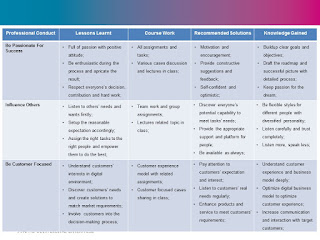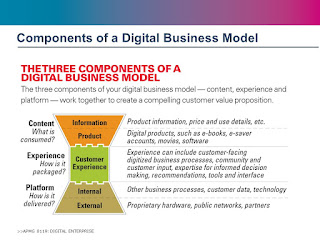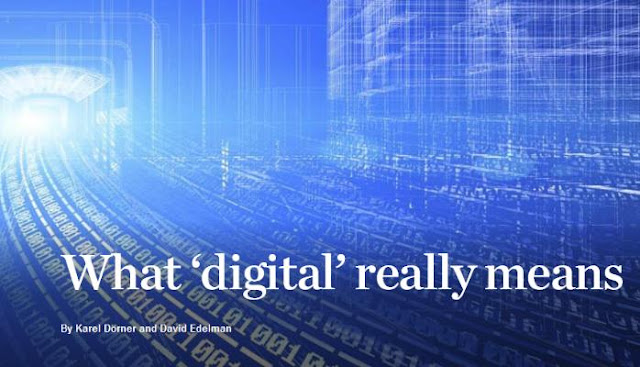Wednesday, 2 November 2016
What ‘digital’ really means
Everyone wants to go digital. The first step is truly understanding what that means.
Companies today are rushing headlong to become more digital. But what does digital really mean?
For some executives, it’s about technology. For others, digital is a new way of engaging with customers. And for others still, it represents an entirely new way of doing business. None of these definitions is necessarily incorrect. But such diverse perspectives often trip up leadership teams because they reflect a lack of alignment and common vision about where the business needs to go. This often results in piecemeal initiatives or misguided efforts that lead to missed opportunities, sluggish performance, or false starts.
Even as CEOs push forward with their digital agendas, it’s worth pausing to clarify vocabulary and sharpen language. Business leaders must have a clear and common understanding of exactly what digital means to them and, as a result, what it means to their business (for a deeper look at how companies can develop meaningful digital strategies and drive business performance.
It’s tempting to look for simple definitions, but to be meaningful and sustainable, we believe that digital should be seen less as a thing and more a way of doing things. To help make this definition more concrete, we’ve broken it down into three attributes: creating value at the new frontiers of the business world, creating value in the processes that execute a vision of customer experiences, and building foundational capabilities that support the entire structure.
China’s digital transformation
As individual companies adopt web technologies, they gain the ability to streamline everything from product development and supply-chain management to sales, marketing, and customer interactions. For China’s small enterprises, greater digitization provides an opportunity to boost their labor productivity, collaborate in new ways, and expand their reach via e-commerce. In fact, new applications of the Internet could account for up to 22 percent of China’s labor-productivity growth by 2025.
Yet the Internet is not merely a tool for automation and efficiency; it also expands markets rapidly. Greater adoption of web technologies in China could lead to the introduction of entirely new products and services if government and industry take the right steps to maximize the potential (exhibit). A new report from the McKinsey Global Institute (MGI), China’s digital transformation: The Internet’s impact on productivity and growth, projects that new Internet applications could fuel some 7 to 22 percent of China’s incremental GDP growth through 2025, depending on the rate of adoption. That translates into 4 trillion to 14 trillion renminbi in annual GDP in 2025.
Subscribe to:
Comments (Atom)















